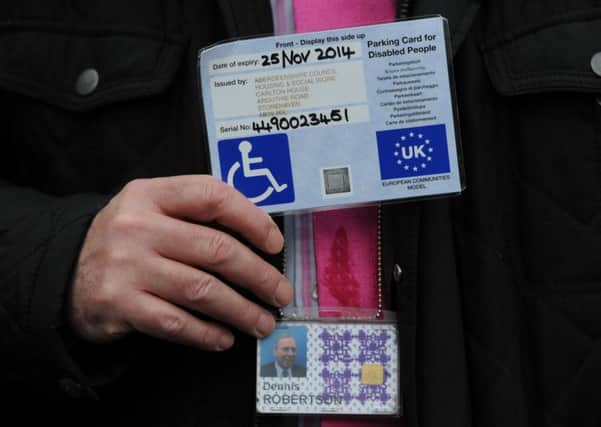Comment: Blue Badges cost little but make huge difference


Perhaps it is an obvious thing to say, but categorising disability is hugely complex. We hear a lot of criticism of welfare reform but in one respect there has been an improvement and this is in the modern assessment of Autistic Spectrum Disorder (ASD). Amongst the families that we support at Kindred, ASD is certainly the most frequent diagnostic label. We will see higher proportions of adults with a diagnosis of ASD in years to come.
In these times of economic downturn, we have noticed a stricter criteria for applications for disability living allowance (DLA) for children with disabilities. I would argue, however, that personal independence payments (PIP) for over 16s is clearly a better assessment tool for ASD, especially when it comes to mobility.
Advertisement
Hide AdAdvertisement
Hide AdThere will be children who do not qualify for the higher rate of DLA (mobility component) who do qualify for the higher rate of mobility for PIP after their 16th birthday. This is significant as the higher rate of mobility (DLA or PIP) is one of the ways in which you can automatically qualify for a Blue Badge, allowing the use of a disabled parking space and free on-street parking.
You may ask what real difference can easier or cheaper parking make to a family? Caring for a person with challenging behaviour is extremely wearing, even more so if they can run fast and have no sense of danger.
But despite much publicity there is still a lack of public sympathy towards parents of children with ASD. Getting a Blue Badge restores some of the “normal” to family life and has been very much in the spotlight due to a recent petition to the Scottish Parliament.
In my view, families of children with autism should not have to qualify for high rate mobility (DLA or PIP) to get a Blue Badge. At a time of recession, the awarding of a Blue Badge can make a hugely positive difference to families whilst costing the taxpayer virtually nothing.
On our helpline, parents of children with ASD tell us repeatedly that they have become cut off from their friends and family. This is because the friends and family blame the parents themselves for the child’s behaviour. Living day in day out with their child, the parent or parents come to see that the child is not being naughty. “Meltdowns” are triggered by stressful situations such as shopping or interacting with other children.
Parking up right next to the shop door can make that dreaded shopping trip just manageable. With a Blue Badge, at least you don’t have to walk for miles dragging a screaming, hyperventilating child to the wonder of passers-by. Not to mention wasting the £5 for parking, or missing out on a day out with the family.
• Sophie Pilgrim is director of Kindred, member of the Scottish Children’s Services Coalition